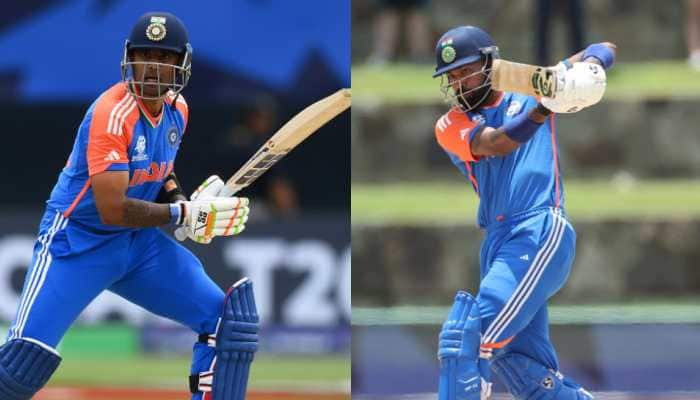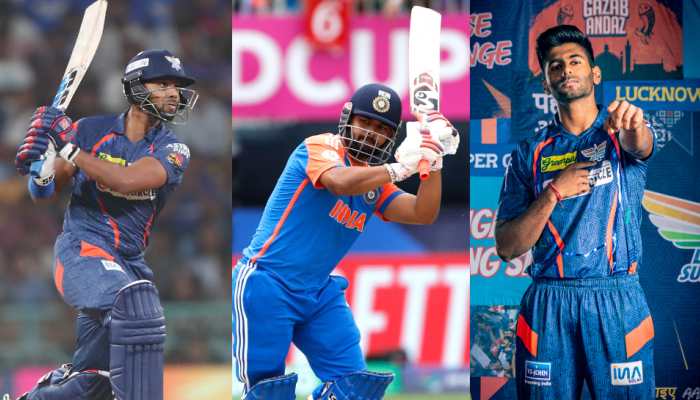Kargil Vijay Diwas: Key battles during Operation Vijay which ensured India's victory
The Kargil conflict was one of the fiercest wars fought by India. It was a war which united the whole nation and reignited a sense of patriotism amongst its citizens.
Trending Photos
)
"Our flag does not fly because the wind moves it; it flies with the last breath of each soldier who died protecting it." ~ Indian Army
The intensity of this sentiment of the Armed Forces can be felt by the passion with which the soldiers at the borders fight selflessly, sacrifice their lives and always prioritise the country ahead of their families. To salute this courage, valour and sacrifice of our martyrs and heroes who lost their lives in the Kargil war, 26 July has been immortalised as Kargil Vijay Diwas.
The Kargil conflict was one of the fiercest wars fought by India. It was a war which united the whole nation and reignited a sense of patriotism amongst its citizens. It was in 1999 from May to July, that the soldiers of the Indian Army fought legendary battles in Dras, Kaksar, Batalik and Turtok Sectors in Jammau and Kashmir's Kargil to push back the Pakistan Army from the icy heights and win the war.
Several key battles were fought and tough peaks were recaptured by the brave soldiers, many of who made the supreme sacrifice, on the Indian side of the LoC which were infiltrated by the Pakistani troops. Known as Operation Vijay, the two countries went into a war after Pakistani soldiers disguised as Kashmiri terrorists infiltrated into the Indian side of the Line of Control.
Here is a look at the key highlights of the Kargil war:

Battle of Tiger hill:
Among the many battles that took place between Indian troops and the enemy, the battle for the recapture of the Tiger Hill can be considered as the most difficult and the bloodiest. The majestic Tiger Hill towers head and shoulders above all the other mountains in its vicinity of Drass village in the Ladakh region. In the final assault at the hill top, 10 Pakistani soldiers were killed and 5 Indian soldiers were also martyred. 18 Grenadiers was tasked to evict the enemy and recapture the peak at the earliest. The plan for the battalion was to launch a three-pronged attack on the Tiger Hill from South, East and North East, from the firm bases provided by 8 Sikh. The attack commenced as planned but due to poor weather, the progress of operations was very slow. By 0200 Hours on 4th July, the battalion’s Ghatak (Commando) platoon had managed to get a foothold on the feature. On July 4, troops surrounded Tiger Hill Top from three sides and a fierce exchange of fire ensued. After a steep climb, under intense fire, the Sikhs managed to get a foothold.
Yogendra Singh Yadav of 18 Grenadiers was awarded the highest military honour, the Param Vir Chakra. He was hit by nearly 15 bullets and was the sole survivor among the 7 people who attacked the Pakistani troops at the hill top. On July 5, 1999 at 16,500 feet above the sea level, 25 soldiers of the 18 Grenadiers unit were ordered to advance to capture Tiger Hill in the Dras sector.

Operations in Dras
Just 50 meters below the hill, a stone slipped while the soldiers climbed the rocks, provoking heavy firing from Pakistani bunkers. 18 Army men had to retreat and just seven jawans inched towards the Pakistani bunkers to capture the hill. Eight Pakistani soldiers were gunned down but two escaped. Later, 100 Pakistanis attacked the Indian bunker killing six of Yadav's comrades. To ensure that all Indian jawans were dead, they shot at the corpses of Indian soldiers too. Yadav survived and threw a grenade at the Pakistani forces killing at least 5 soldiers. Yadav also sent a message back to his troops who advanced as backup and successfully won the Tiger Hill.

Battle of Tololing:
Army’s 18 Grenadiers and 2nd Rajputana Rifle captured Tololing in three weeks. The only way to capture Tololing was through a frontal assault, making it a suicidal attempt from the Indian side. 23 soldiers were martyred in the attack. After Pakistani troops were dislodged from the heights of Tololing, the Indian Army was able to capture at least five more outposts in the next week. During the strenuous sheer vertical slope, soldiers even chose to shed their 2-kg food packets so that they could carry more ammunition.

Operations in Kaskar
In May, the 121 Brigade of the Indian Army conducted several patrols in the Kaksar Langpa area of Kargil district to essentially check whether the snow had retreated enough to allow troops to reoccupy their high-altitude summer positions along the Line of Control. Lieutenant Saurabh Kalia was the first Indian army officer who observed large-scale intrusion of Pakistani Army on the Indian side of the LoC at Kargil. He along with five other soldiers – Sepoys Arjun Ram, Bhanwar Lal Bagaria, Bhika Ram, Moola Ram and Naresh Singh engaged in a crossfire with Pakistani troops in the Kaksar sector. After a continuous gun battle, his troops ran out of ammunition and were captured alive by Pakistani rangers. Thereafter, Indian troops found out the scale of the attack that was being planned.
Lt Kalia and his men were in captivity for 22 days from 15 May to 7 June where they were subjected to brutal torture. Their bodies were handed over on June 9. The bodies had several injuries including marks of them being burnt with cigarettes, their ear-drums were pierced with hot rods, eyes were punctured before removing them, most of their teeth and bones were broken, skulls were fractured, lips and nose were chipped off, and limbs and private organs were also chopped off. The post-mortem revealed that many of these injuries were inflicted before they were shot dead.

Battle of Point 4875
On 6 July 1999, a Company of 17 JAT was tasked to capture an objective, which was a part of the Pimple Complex on the Western Slopes of Point 4875, in the Mashkoh Valley. Captain Anuj Nayyar led his company under heavy enemy artillery and mortar fire. Capt Nayyar physically assaulted the enemy and motivated his men to clear three enemy medium machine gun positions, killing nine enemy soldiers. While clearing the fourth position, an enemy rocket propelled grenade hit the officer.
Meanwhile, 13 JAK RIF continued the attack on Point 4875 with a Company under Major SV Bhaskar assaulting along the eastern slopes of Point 4875 and a Company under Major Gurpreet Singh assaulting along the western slope of South Spur, with a view to eventually capturing Flat Top. By 1 pm, on 5 July, 13 JAK RIF had ensured that Point 4875 and the adjacent Flat Top were back in Indian hands. Realising that their routes had been cut off, Pakistani troops launched a series of counterattacks supported by very heavy artillery fire. Fierce fighting continued throughout the day resulting in the recapturing of the Helmet feature on Tiger Hill. In the renewed attacks on 5/6 July, Dog Hill was captured despite stiff resistance and a foothold was established on Stangba North.

Operations in Batalik:
Pakistani troops had moved as much as 8-10 km in the Batalik sector and had even captured several abandoned bunkers. Knowing that the Indian Army did not have a permanent presence in the area, enemy trekked for days in deep snow to occupy four major ridge lines that dominated the area with an objective to dominate the Leh-Batalik-Kargil road. The control of the Batalik sector would have ensured that the lifeline of the Siachen glacier is under constant watch and is within the firing range.
A platoon of 1/11 Gorkha Rifles, led by Lieutenant Manoj Kumar Pandey, was tasked by the Force to clear the enemy positions in Khalubar in the Batalik sub-sector. Despite being under heavy attack, he sent one section of the troops to clear the enemy positions from the right, while he himself proceeded to the left. He attacked the first enemy position killing two enemy soldiers, and destroying the second position by killing two more. Though he got severely injured in the shoulder and legs while clearing the third position, he continued to lead the assault on the fourth position. Though he destroyed the last and fourth position with a grenade, he was hit fatally in the forehead. However, these operations gave his battalion a crucial and firm base leading to the capture of Khalubar and Batalik.
Stay informed on all the latest news, real-time breaking news updates, and follow all the important headlines in india news and world News on Zee News.
Live Tv







)
)
)
)
)
)
)
)
)
)
